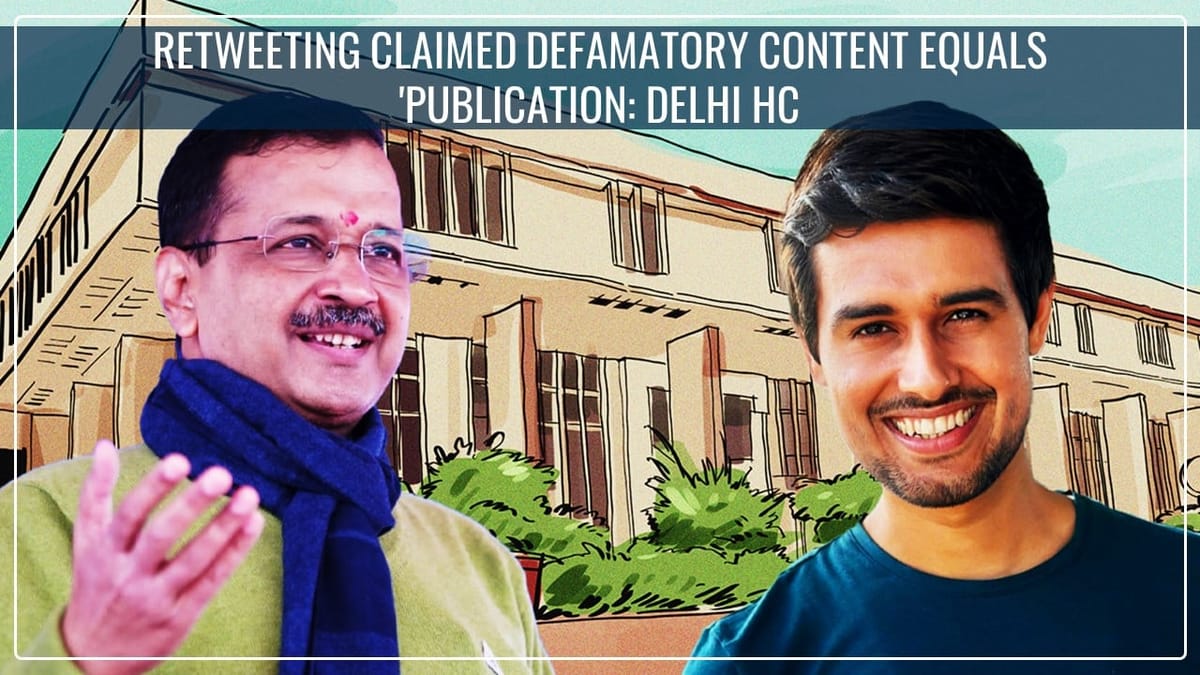Delhi HC ruled that retweeting allegedly defamatory content constituted publishing of such content and attracts liability under Sec 499 of IPC which is offence of defamation.
Reetu | Feb 8, 2024 |

Retweeting claimed defamatory content equals ‘publication’ and social media reach matters in determining impact: Delhi HC
The Delhi High Court ruled on Monday that retweeting allegedly defamatory content constituted publishing of such content, inviting liability under Section 499 of the Indian Penal Code (IPC), which deals with the offence of defamation.
Importantly, according to the judgement posted, the Court also stated that in the instance of several retweets, it is up to the aggrieved party to determine which retweets caused more harm to their reputation.
“Sometimes, it is difficult to erase the reputational injury from public memory, as the tweets may be deleted but impressions are difficult to be deleted from the minds of the community,” the judge said.
These observations were made by a single bench of Justice Swarana Kanta Sharma while hearing Chief Minister Arvind Kejriwal’s appeal against summons issued to him in a 2019 defamation complaint filed by Vikas Sankritayan, who operates the social media post ‘I Support Narendra Modi’. What is the case about? In 2018, Sankritayan filed a defamation complaint against Kejriwal for retweeting YouTuber Dhruv Rathee’s comment.
Rathee tweeted a link to a video in which he claimed that the BJP IT Cell bribed someone to slander him.
This Court, thus, for the purpose of adjudicating the present case, holds that retweeting a content, which is allegedly defamatory, on the Twitter account and projecting it to be as if his own views, will prima facie attract the liability under Section 499 of IPC, for the purpose of issuance of summons.
Therefore, this Court finds no infirmity with the impugned orders passed by the learned Trial Court as well as learned Sessions Court.
Accordingly, the present petition stands dismissed. It is, however, clarified that the observations made hereinabove qua the present complaint case are solely for the purpose of deciding the instant petition challenging the summoning orders, and the same shall not be construed as the opinion of this Court on the merits of the case, which will be adjudicated upon during the course of the trial.
For Official Order Download PDF Given Below:
In case of any Doubt regarding Membership you can mail us at contact@studycafe.in
Join Studycafe's WhatsApp Group or Telegram Channel for Latest Updates on Government Job, Sarkari Naukri, Private Jobs, Income Tax, GST, Companies Act, Judgements and CA, CS, ICWA, and MUCH MORE!"